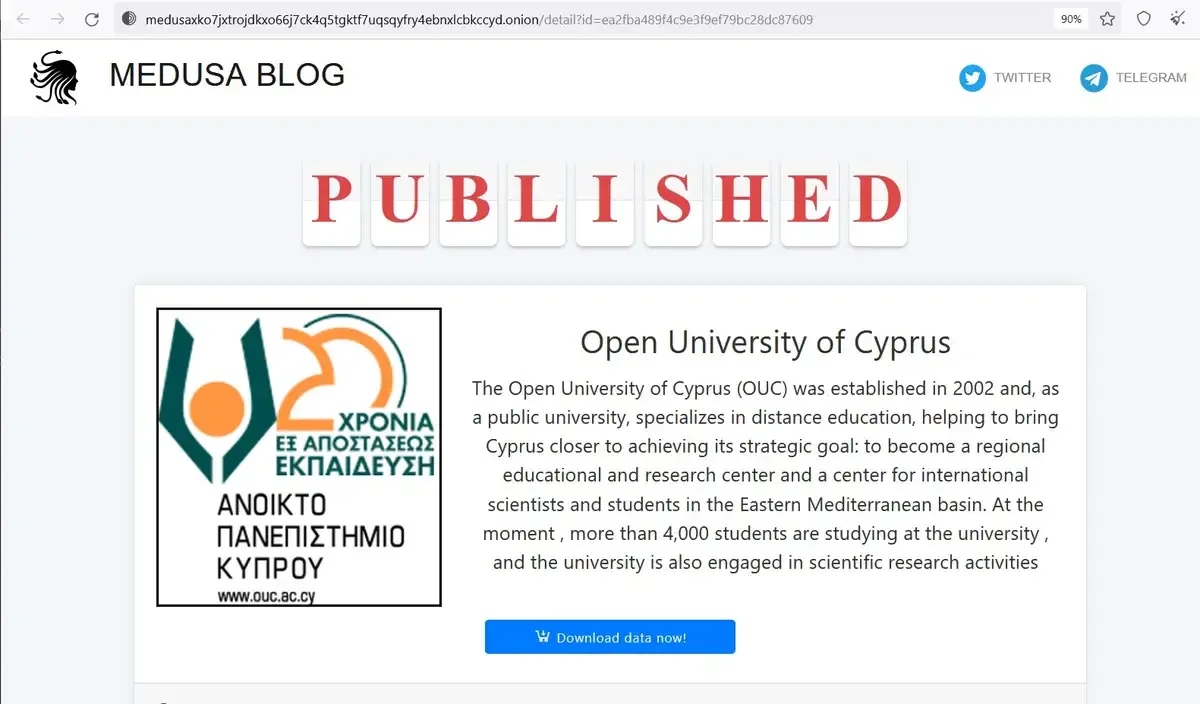The hacker team Medusa finally leaked the data of the Open University of Cyprus after the ransom demand from the Government of Cyprus was not met.

The Open University of Cyprus did not comply today's deadline which had been set by the hacker group "Medusa" to pay a ransom in exchange for the non-disclosure of sensitive personal data.
So today, Thursday 20/04/2023, the hackers published the data they stole on their website on the Dark Web. Their website went down sometime this morning but reappeared around 13:40pm the same day, with the team announcing that the data had been leaked and it was now possible to λήψη their.
Medusa's website on the Dark Web it's her and to see it requires its use Tor Project browser. The relevant announcement with the possibility of downloading the data it's her. To download the data it is required to be installed qTox messager and their request from there.

The “Dark Web” is a part of the internet that offers anonymity and is only accessible with specialized software such as 'Tor'. This software does not work with regular .com addresses, but uses .onion.
The Medusa group demanded $100.000 in cryptocurrency in exchange for the non-disclosure of the data, which included information about students, former students, alumni, academic and administrative staff, researchers and collaborators. The Republic of Cyprus did not pay the ransom and the hackers carried out their threat.
Thank you Chrysa Koukouletsou to update the news.





